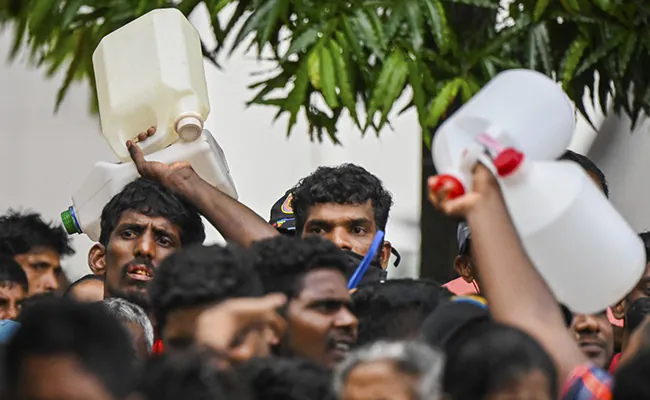The Sri Lankan government has proposed introducing a specific fuel rationing scheme in the coming month. Under this scheme, the registered consumers at filling stations are assured of receiving a guaranteed weekly quota, as reported by a senior minister on Sunday.
Since mid-February, the island nation has been experiencing massive lines to refill their fuel which comes about with pressure on the diesel supplies for thermal power generation. The island was experiencing almost 10-hour power cuts by early April due to diesel and furnace oil shortages for generating power.
Energy Minister Kanchana Wijesekera was seen tweeting on Sunday, saying, “We have no choice but register consumers at filling stations and give them a guaranteed weekly quota until we can strengthen the financial situation, get back the power at the 24-hour time and achieve a steady supply of fuel. By the 1st week of July, I hope to have this system in place.”
Until around-the-clock 24-hour supply of electricity and fuel would remain uninterrupted, the minister plans to get the task on hand and be managed readily.
This scarcity has led to reports of stockpiling and hoarding of fuel. To address such a crisis, Wijesekera hoped to have the measure of imposing a fuel quota that would reach the approach in the long run.
In another tweet, he said, “With the financial restrictions in place, the Ceylon Petroleum Corporation imports fuel to manage for a week, but for some consumers stockpile fuel for a month or more for their generators and machinery.”
He mentions that the generation of a 24-hour power supply would cost an additional USD 100 million per month for diesel and furnace oil.
The demand for electricity and kerosene has escalated due to the shortage in gas supply, and the monthly fuel bill that was initially at USD 200 million four months ago now updated to USD 550 million, the minister reported.
On Saturday, Wijesekera informed the reporters, “We are expecting the last diesel shipment under ILC (Indian Line of Credit) on June 16 and the last petro shipment to be on June 22”. The fuel purchases of Sri Lanka have been entirely dependent on the ILC – a USD 500 million credit line in the starting period which got supplemented with an additional USD 200 million later on.
Apart from this, Wijesekera also said that the minimum daily requirement of diesel was 5,000 metric tonnes since citizens also need it to run private generators due to the imposed power cuts. On such matter of energy crisis, India has helped Sri Lanka by providing thousands of tonnes of diesel and petrol counted apart from food and medical supplies as well. This was to help smooth the acute fuel shortage in the debt-ridden island nation.
The rising high global prices of crude due to the ongoing war crisis in Ukraine, the massive depreciation of the Sri Lankan rupee against the US dollar, and the depleting gas reserves are the reasons why Sri Lanka as a nation has been struggling to import fuel.













